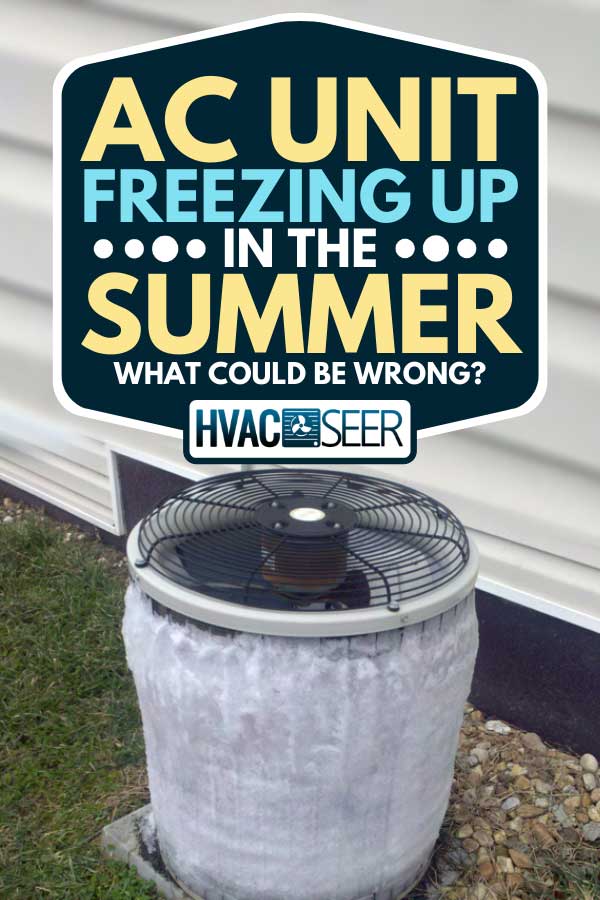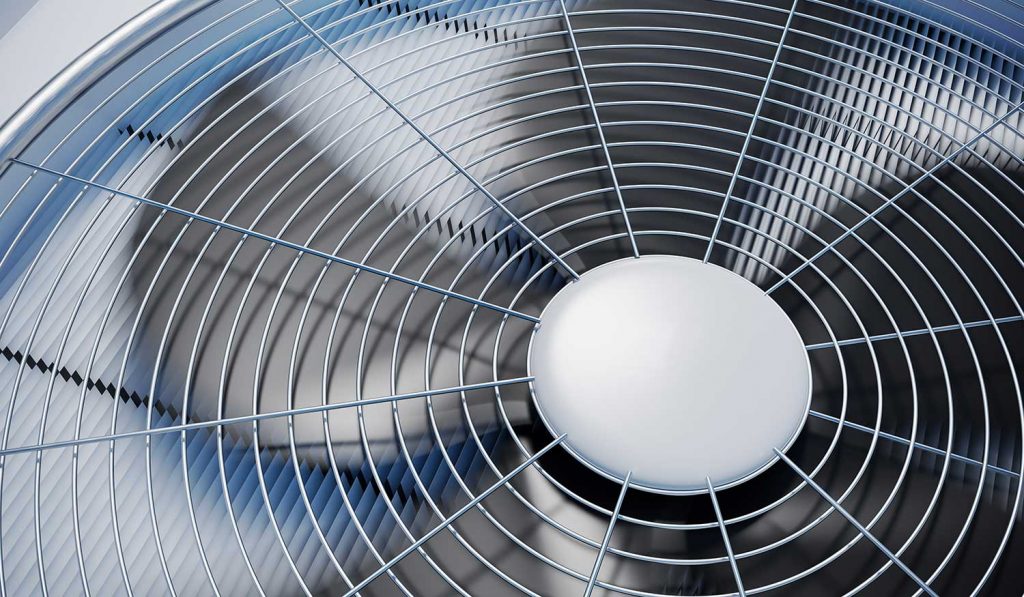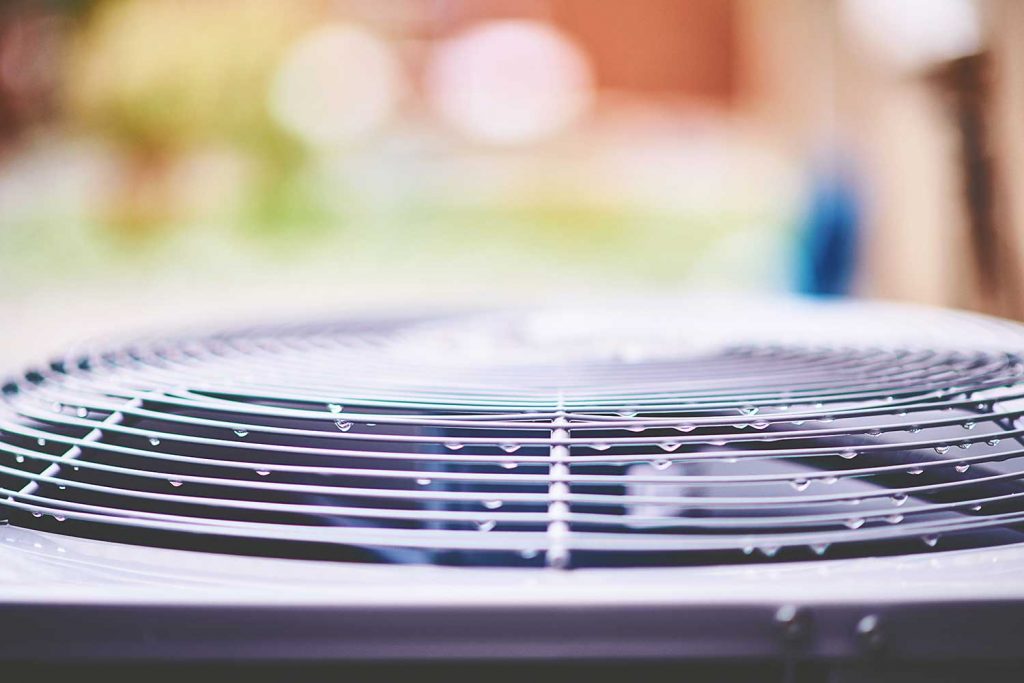It may sound strange that in the heat of summer your air conditioner can actually develop an ice buildup, but it is possible, and it can be a huge inconvenience when it happens. Understanding the causes for this type of "freeze-up," however, can help you prevent your AC unit from doing so. We've done the research to bring you the most common issues and how to solve them.
Some of the most common culprits of this issue include:
- Dirty Filters
- Evaporator Coils Lack Airflow
- Low Refrigerant
- Thermostat Issues
- Too Many Closed Ducts and Vents
- Insufficient Fan Speed
If you still have more questions, don't fret. In this guide, we'll take a look at these causes more closely and discuss the best solutions for them. Just keep reading.

Common Culprits Of A Frozen AC Unit In The Summer
When your AC unit freezes in the summer, regardless of the reason, it can be a sign that your AC unit needs attention. First, be sure to turn off your unit it's frozen over. Next, you may want to contact a qualified HVAC professional to help diagnose the issue if's too complex for you to remedy on your own.
But before you jump immediately to the help of a professional, let's discuss the most common issues and their remedies.
Dirty Filters
The filters in an air conditioner are responsible for the air quality that it provides. They work by removing any contaminants and pollutants from the air that circulates within the air conditioner unit. An efficient air filter will block any stray material and prevent it from entering the AC unit and causing mechanical issues.
So when the filter gets clogged up with dirt, lint, or any kind of debris, it impedes the airflow inside the unit making it work twice as hard to keep the temperature in your home cool. This type of buildup prevents the air inside the AC unit from circulating. As a result, the air becomes trapped in the AC unit, causing condensation which eventually freezes on the coils.
Evaporator Coils Lack Airflow
The coils inside an air conditioner work to absorb heat inside your home and expel it outside of the home. When these coils freeze as a result of a dirty air filter, ice will form on top of them, causing a complete halt of the cooling process. Unfortunately, this same cooling process creates moisture inside the air conditioner unit, which can then freeze inside the coils.
The evaporator coils can also freeze over when they themselves become clogged up or caked with things such as dirt, pet dander, or other debris. When this occurs, it insulates the coils, and heat cannot be transferred through the fins and to into the coolant. As the cooling process continues, the coolant will keep making the coils colder, eventually reaching a temperature of fewer than 32 degrees Fahrenheit.
As moisture begins to condense on the top of it, the coil quickly freezes over. Frozen coils will prevent your air conditioner from running, so it's important to address the issue immediately.
How Often Should You Clean AC Coils?
HVAC professionals recommend cleaning air conditioner coils at least once a year, ideally 2 times a year. Dirty condenser and evaporator coils can increase the energy consumption of an air conditioner unit by over 30% -- which means higher energy bills in the spring and summer. Also, older air conditioners tend to accumulate more dirt and dust more quickly than newer models, and will generally need more attention.
How Do You Clean The Coils On Your AC?
1. Turn off the air conditioner and shut off the power to its condensing unit. 2. Take off the case and remove the caging and bolts attached to the lids of the condenser. Be sure to avoid hitting the bolts holding the blower fan in place. If your unit's blower fan assembly is located on the top of it, be careful not to damage or pull any wires out. If you're unable to do this or find that it's hard to reach, you should contact an HVAC professional. 3. Remove any broken fins and clear out any debris in the area. If needed, use a small brush or broom to remove any dirt, dead insects, broken coil fins, or leaves then may have gotten inside the unit. 4. Spray the unit with a water hose, and be sure not to soak or dislodge the electrical components in the access panel. 5. Spray the unit with coil cleaner (if you have it) and allow it to sit for the recommended period. After, rinse the unit again with the water hose. 6. Dry the areas outside the unit with a lint-free cloth 7. Inspect coil fins for damage. If you have a fin comb, use it to carefully straighten any bent coil fins. 8. Reassemble your unit and be sure to securely tighten all the removed bolts and latches.
Check out this fin comb and brush kit on Amazon.
Low Refrigerant
An air conditioner's coolant works by expanding the coils inside the unit to help your home reach your preferred temperatures. Insufficient levels of coolant will interrupt the temperature exchange that takes place inside the coils and can cause them to freeze over. Oftentimes, these low levels are the result of a leak.
If there isn't enough coolant to monitor the cooling process, the air conditioner will become overworked. Over time, this can cause a strain on the air conditioner's mechanics and lead to a complete replacement of your system. Having a licensed HVAC technician examine your unit for potential leaks and then recharging it is the best way to solve this issue.
Thermostat Issues
Malfunctioning thermostats is an issue that's more common in older air conditioner models. When a thermostat malfunctions, it can also cause an AC unit to freeze up. While this is also typically more common in colder weather, it can definitely occur in the summer during the evening when temperatures drop or when temperatures are unseasonably cold.
The cooling coil inside an air conditioner will become too cold, as it relies on warmer air to work effectively. A working thermostat will switch off when a room reaches its temperature setting. If the unit continues to run and cool beyond the temperature setting, then you know you have an issue relating to the thermostat. And if this is the case, the thermostat will need to be recalibrated or replaced.
Too Many Closed Ducts and Vents
Homeowners often close the air vents in unoccupied rooms to reduce their energy bills, however, this practice can actually make your AC unit run less efficiently. How? The vents and grates in your home are connected to two types of air ducts; the return vents and ducts which pull in warm, humid air and carry it to the system's air handler to be dehumidified and cooled, and the supply vents and ducts which bring dehumidified and cooled into the rooms in your house.
When too many of these ducts are closed, it creates a bottleneck for the unit's airflow, which over time causes condensation. This condensation will quickly turn into ice due to the temperature of the coils getting too low.
Insufficient Fan Speed

A malfunctioning blower fan can also cause an air conditioner unit to freeze over. The perfect balance of air pressure and airflow is necessary for the effective operation of your AC unit. When a blower fan is inoperable or running at an incorrect speed, airflow inside the unit will be reduced and the resulting heat will create condensation on the coils, causing them to freeze. Make the necessary fan speed adjustments.
Can You Pour Hot Water On A Frozen AC?
Yes, pouring hot water on your air conditioning unit will work to melt the ice that has formed on the coils. Is it recommended? No. Too much heat can crack your evaporator coil, resulting in it needing replacement. However, lukewarm water or running water will work as well to melt the ice on the unit -- and it's less risky.
If you do use this method, it's important to pour the water carefully and directly on the coils, to avoid splashing other areas of the unit, and to mop up any water that is filled around it.
HVAC professionals generally don't recommend this technique as the best way to thaw out your coils. An air conditioning unit, like any other type of electrical equipment, can short circuit if you pour water on it without proper care. Instead, HVAC professionals recommend using other methods to thaw out your AC unit.
Allow Nature To Work

One of the safest and easiest ways to defrost your AC unit is to simply allow nature to take care of the ice for you. Warmer summer temperatures allow heat to melt ice without you having to lift a finger. To do this, first, turn off your unit from the control panel, then turn off all power to the system from the breaker box in your home's electrical panel.
All you have to do now is wait for the ice to thaw out. Do not attempt to chip the ice off with a sharp object or remove it with your hands, as you risk injury to yourself and the components of the unit. If there is a significant amount of ice, it will take longer to melt. Be sure to mop up any standing water that may have accumulated under your evaporator coil. It can even help to place some towels down.
Use A Hairdryer
Another effective way to thaw out your air conditioner's coils is to use a hairdryer. To do this, make sure that the dryer is on the lowest setting possible. Next, hold the hairdryer about 12 to 14 inches away from the coil, as too much direct heat on the frozen coil can cause it to crack.
Move the dryer back and forth as the ice melts. Once all of the ice has melted, dry the unit out by turning it on and selecting the "fan-only" setting. This will allow the air inside the unit to circulate and dry up any remaining moisture.
Please note that both of these methods should also be used with extreme caution. Before turning on your unit again, it's helpful to take steps to address the issues that are causing it to freeze in the first place. Whether it's cleaning the evaporator coil, replacing the air filter, or recalibrating a faulty thermostat, maintaining your air conditioner is the best way to keep it from freezing over.
An experienced HVAC technician can perform this type of maintenance check once or twice a year and ensure that your unit is working as efficiently as possible.
How Long Does It Take For The AC To Unfreeze?
It can take air conditioner coils anywhere from 2 to 24 hours to thaw completely during summer weather. It may be less than 24 hours if your unit is exposed to direct sunlight or if you use the hairdryer or warm water techniques.
Wrapping Things Up
An air conditioner can freeze up in the summer for several reasons. Hopefully, this guide will help you to quickly resolve this issue should you find that your unit has frozen over. Remember, it's always advised to first seek the assistance of an HVAC professional before performing any invasive tasks on your air conditioner unit.
Before you go, be sure to check out our other helpful HVAC articles:

